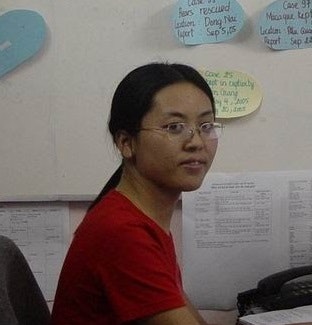Mobilising the public through participation – a national programme to stop the wildlife trade in Vietnam
Illegal wildlife trade is one of the greatest threats facing biodiversity in Vietnam. As the country’s economy grows, infrastructure developments are linking previously remote areas to outside markets, feeding an alarming trade in wildlife with neighbouring China, Laos and Cambodia for use in traditional medicine, foods, and as souvenirs and pets.
At the same time, domestic demand within Vietnam is growing, particularly for bear bile. Incentives to hunt wildlife are often high for rural people, and Vietnam has now become not only as a supplier of wildlife, but also a conduit for wildlife smuggled from abroad. Though tens of thousands of animals are confiscated – more than 15,500 animals in 2001 alone – this is thought to represent only about 5% of the total trade.

Vietnam became a member to CITES in 1994, and under domestic law, permits are required to import and export threatened wildlife. However, much of the trade goes unregulated as enforcement agencies lack the essential equipment, resources and manpower. Several extinctions have occurred, and some species found only in Vietnam are now critically endangered, including Tonkin snub-nosed monkey, Delacour’s langur monkey and Vietnamese pond turtle. Bears, reptiles and primates are undergoing the most severe declines.
Despite the urgency of the situation, public awareness of the negative impacts of the illegal consumption and sale of wildlife is low, and is one of the main factors contributing to the scale of the problem.
Education for Nature was established in 2000 as Vietnam’s first environmental education-focused NGO. Since 2005, the Wildlife Trade Department of ENV has been led by Nguyen Dung, 26. Through innovative use a new Wildlife Trade Hotline, national radio announcements and the media, Dung’s work has not only increased the public awareness of the problem, but has also increased the capacity of the authorities to deal with cases. The hotline now provides members of the general public with the opportunity to report illegal trade, information which is then passed on to enforcement agencies.
In just one year, monitoring has shown fewer endangered species being sold in Hanoi’s main markets. Dung now intends to build on this success through expansion of the radio show and hotline to provincial radio stations and development of a pilot monitoring system in Hanoi to assess wildlife trade at markets and restaurants.





